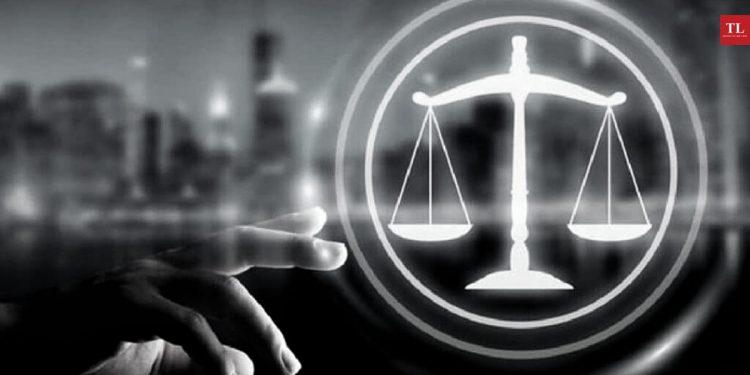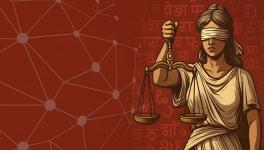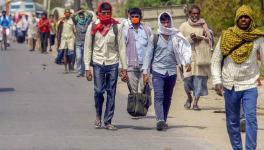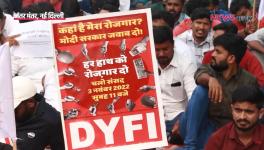How the Judicial ‘Lockdown’ Short-changes Both Advocates and Litigants

“JUDICIAL service as well as legal service are not like any other services. They are missions for serving the society. The mission is not achieved if the litigant who is waiting in the queue does not get his turn for a long time” [Hussain & Anr. vs. Union of India, 2017 (AIR) SC 1362].
The legal circle in Punjab and Haryana has witnesses some commotion in recent months. The genesis of the issue lies in the decision of the administration of the Punjab & Haryana High Court to permit the restricted listing of cases with effect from April 23 this year in the wake of the second COVID-19 wave. Even matters concerning bail and the life and liberty of citizens were not being directly accepted by the High Court Registry.
When, for over two weeks, the efforts of the Bar Association cut no ice with the High Court Administration, the Bar Association was constrained to revive its February 1, 2021 resolution to boycott the Court of the Chief Justice. Some quarters did question the stand of the Bar Association to strike or boycott.
Supreme Court: Advocates have no right to strike
The issue of strikes by bar associations and their consequent loss to the judicial system has been discussed in a number of judgments. The Supreme Court has come down heavily on advocates and bar associations for striking work and has held that advocates have no right to go on a strike.
In its judgment in the case of Common Cause, A Regd. Society vs. Union of India, 1994(5) SCC 557, the Supreme Court observed:
“Since litigants have a fundamental right to speedy justice as observed in Hussainara Khatoon v. Home Secy., State of Bihar, 1980 (1) SCC 81, it is essential that cases must proceed when they appear on board and should not ordinarily be adjourned on account of the absence of the lawyers unless there are cogent reasons to do so. If cases get adjourned time and again due to cessation of work by lawyers it will, in the end, result in erosion of faith in the justice delivery system which will harm the image and dignity of the Court as well.”
In its judgment in Ex. Capt. Harish Uppal vs. Union of India & Anr. (2003 AIR SC 739), the apex court averred:
“It is the duty of every Advocate who has accepted a brief to attend the trial, even though it may go on day to day and for a prolonged period. It is also settled law that a lawyer who has accepted a brief cannot refuse to attend Court because a boycott call is given by the Bar Association. It is settled law that it is unprofessional as well as unbecoming for a lawyer who has accepted a brief to refuse to attend Court even in pursuance of a call for strike or boycott by the Bar Association or the Bar Council. It is settled law that Courts are under an obligation to hear and decide cases brought before it and cannot adjourn matters merely because lawyers are on strike.”
Even in cases where the issue of strike by advocates was not even in question, the Supreme Court still spared some thoughts on the matter and minced no words in deprecating the practice. For instance, in Krishnakant Tamrakar vs. The State of Madhya Pradesh, 2018 (17) SCC 27, where the issue before the Supreme Court was that of judicial delay in disposal of an appeal by the Madhya Pradesh High Court, the court saw it fit to discuss the issue of strikes by advocates. The Supreme Court observed in relation to the same:
“We may also deal with another important aspect of speedy justice. It is well known that at some places there are frequent strikes, seriously obstructing access to justice. Even cases of persons languishing in custody are delayed on that account. By every strike, irreversible damage is suffered by the judicial system, particularly consumers of justice. They are denied access to justice. Tax payers’ money is lost on account of judicial and public time being lost. Nobody is accountable for such loss and harassment.”
In its order dated December 6, 2019, in M/s PLR Projects Pvt. Ltd. vs. Mahanadi Coalfields Limited & Ors., 2019 (10) SCC 306, the Supreme Court again opined that striking by advocates directly interferes with a common man’s right to access justice.
After going through these judgments, a sense of guilt would enter the mind of any sincere practicing lawyer. A study of these judgments might well give the sense, even if misplaced, that the occasional call to strike by advocates is one of the biggest reasons behind the glacial pace of our judicial system.
Judicial lockdown has adversely affected both litigants and advocates
Thus it is ironic that the advocates of Punjab & Haryana High Court had to resort to a strike in order to press their demand for resumption of normal functioning of courts. Courts have been in virtual lockdown mode since March 2020, with restricted hearings for more than a year now. As a result, the trial of cases, both civil and criminal, has come to a standstill.
Consequently, now a woman who has filed an application under Section 125 of the Criminal Procedure Code, 1973 for grant of maintenance does not know when it will be taken up; even if she has an interim order of maintenance in her favour, she is unable to enforce it. A tenant against whom a petition for ejectment is filed by the landlord on the ground of non-payment of rent is virtually enjoying rent-free possession of the rented premises since such cases are either not being taken up or are being adjourned for a very long date. Someone who has filed a cheque bounce case or someone who has been illegally dispossessed from a property is made to wait for the resumption of normal proceedings by courts in order to get relief. Victims of domestic violence don’t know when they will get justice.
Also read: The Judiciary in Lockdown
Millions of such matters pending in various courts throughout the country are merely being adjourned for the past year. At the High Court level, applications for suspension of sentence in appeals/revisions, and for even regular bails are being adjourned without being taken up. The cases pending from prior to March 2020 seem to be nobody’s business.
Advocates, at their end, have to face angry clients and bear the brunt of this virtual judicial lockdown, even though they have no say in this state of affairs and are themselves at its receiving end. The general discontentment in public due to non-resolution of disputes is rising, and disenchantment with the judicial system is palpable. Citizens have been rendered practically remediless.
The Supreme Court has held the rights to access to justice (see Anita Kushwaha vs. Pushap Sudan, 2016 (8) SCC 509) and to speedy trial [see Hussainara Khatoon & Ors. vs. Home Secy., State of Bihar, Patna, 1980 (1) SCC 81) to be fundamental rights. While the Executive does have the power under Articles 358 and 359 of the Constitution of India to suspend fundamental rights in case of a national emergency or state emergency, similar powers to suspend fundamental rights are not vested in the judiciary.
There is no provision that permits suspension of fundamental rights even by the Executive, much less the judiciary, during a medical emergency, epidemic or pandemic. Nonetheless, the country seems to be going through a judicial emergency dehors the Constitution of India.
As a practicing advocate, I will be remiss if I do not bring up the plight of advocates. The judicial lockdown has driven the legal fraternity into great financial turmoil. The legal profession has been one of the worst-hit. During this period, countless advocates have been forced to leave the profession and take to other jobs/employment to sustain themselves and their families. An overwhelmingly large number of advocates are being driven towards penury with each passing month.
Also read: The Pandemic Strikes Law, Lawyers and the Legal System Hard
Advocates not involved in decision-making by courts as stakeholders
The livelihood of the advocate depends directly on the functioning of Courts. Courts, at their end, also do require the assistance of Advocates for deciding matters. Advocates are certainly stakeholders in the judicial system but are rarely consulted or taken into confidence by the court administrations in their decision-making. More often than not, advocates only get to react to administrative decisions of the heads of the judiciary, much like the rest of the public.
The takeaway for advocates is that they should not be lulled into a false sense of security or even pride in being referred to as ‘officers of the court’. It has become clear that advocates and their livelihood is not seen by the courts as one of their responsibilities, and it is certainly the least important area of concern for court administrations.
“Who goes to the court? You go to the court and regret”: these recent remarks by former Chief Justice of India Ranjan Gogoi aptly sums up the situation. Only time will tell as to whether the judiciary applies to itself and reconcile its functioning with the high ideals enunciated by it in its various past judgments.
(Amit Jaiswal is an Advocate practicing at the Punjab & Haryana High Court with 19 years of standing at the Bar, practicing largely on the civil and constitutional side. The views expressed are personal.)
Originally Published in The Leaflet
Get the latest reports & analysis with people's perspective on Protests, movements & deep analytical videos, discussions of the current affairs in your Telegram app. Subscribe to NewsClick's Telegram channel & get Real-Time updates on stories, as they get published on our website.
























